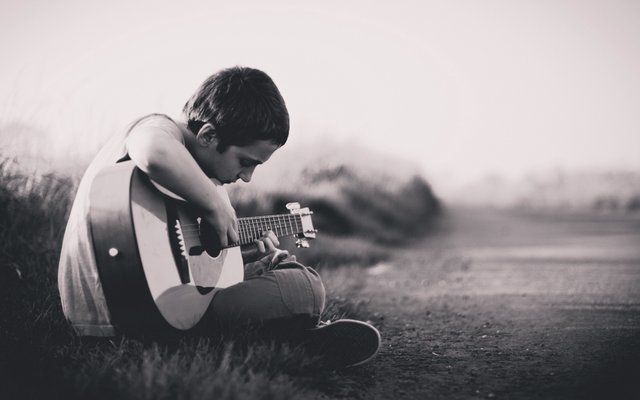
One of the biggest challenges parents face in attempting to raise our children to become peaceful, compassionate, critical thinking individuals, is overcoming the outdated authoritarian parenting programming that most of our parents modeled for us when we were growing up.
I believe it is imperative that we rise to this challenge for two reasons:
- Because modeling peaceful and mutually respectful interpersonal dynamics is the best way ensure that the next generation relies on peaceful and mutually beneficial interpersonal dynamics.
- Because our children do not belong to us. They are not our property. They belong to themselves.
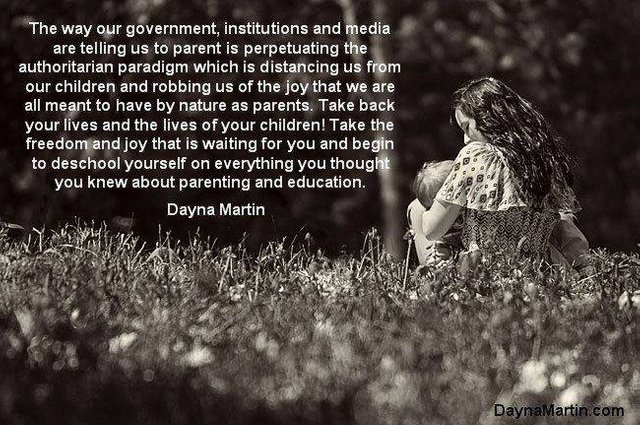
Rejecting Antiquated Authoritarian Parenting Paradigms
Most of us were raised in controlling, authoritarian households in which one or both of our parents used coercion, bribery, emotional blackmail, spanking, and punishments to make us behave. Our parents and guardians used these traditional parenting methods because it was what they knew to do in order to get us to behave, be quiet, submit, and obey. Some of us had the misfortune of growing up in abusive households. Many of us learned what we lived, and now parent our own children using coercive methods too (even if our styles differ somewhat from our parents' coercive parenting methods).
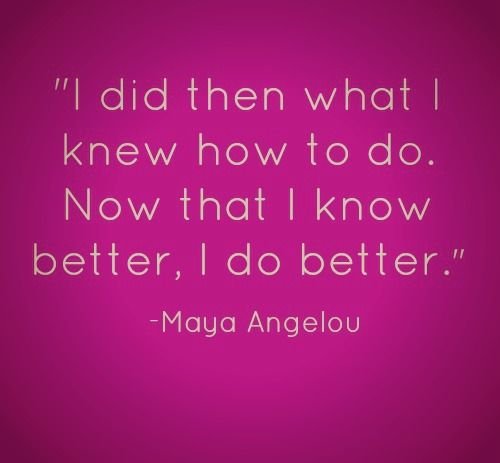
So, if we want to raise fully autonomous, peaceful individuals who think for themselves and don't blindly follow coercive authoritarian systems of doing things, we need to carefully examine our long-held beliefs about parenting. Change starts from within.
Children Own Themselves
For centuries, people thought it was perfectly fine to own other people.
After that horribly violent abomination finally was abolished, it was still fashionable in Western society for husbands to believe they owned their wives. Husbands were even encouraged to use physical force, humiliation, and intimidation to "discipline" their wives if they didn't like their behavior.
Finally, the tired old idea that children belong to their parents is fading away, and it's about time! Dayna Martin, author, speaker, and radical unschooling mom, wrote an excellent article on her blog called The Evolution of Children's Rights that echos similar sentiments.
"We live in a world where parents are told to control and modify their children’s behavior. They are told that this is the goal of parenting. Most parents take pride in how obedient their children are and feel embarrassed when their children do not listen to them. It wasn’t very long ago that men were told to beat their wives if they didn’t obey. Men were encouraged by their fathers, friends and leaders to punish their wives harshly for disobedience. Look how far we have come since then! Men would be arrested today if they lived life this way now.I believe that the same evolution is happening with children and their rights. We are on the cusp of change. In time, we will look back on these days with disgust and regret. When we can acknowledge the injustice that children live through being controlled, punished, and forced to live a subservient life we can begin to heal ourselves from our own upbringing."—Dayna Martin
John Locke, English philosopher and physician, wrote about the idea of self-ownership all the way back in 1689 in an essay called Of Property and Government, in which he asserted that everyone has property in their own person. In other words, everyone owns themselves.
Though the earth and all inferior creatures be common to all men, yet every man has a "property" in his own "person." This nobody has any right to but himself.—John Locke, Of Property and Government
Hundreds of years later, Robert LeFevre, American libertarian businessman, activist, and radio personality, took the idea of self-ownership even further in his book The Philosophy of Ownership, and even extended self-ownership to infants, back in 1966.
"An adult who is injured in some way, who may be ill or decrepit in old age, is still recognized as an owner of himself and his other properties. He may have to be waited upon hand and foot, yet his ownership of himself is not questioned, so long as he lives. The same realization should apply to all persons, infants included. I would set down as the fundamental instances of incorrect ownership the ancient practice of possessive marriage, possessive child-parent relationships, and control of the slave obtained in battle or in any other way."—Robert LeFevre, Chapter 4, The Philosophy of Ownership
One of my favorite living voluntaryists is writer and speaker Wendy McElroy. She offers a very straightforward view of self-ownership that I absolutely love. It really gets to the heart of the matter of self-ownership and makes it clear enough for even children to understand.
"Self-ownership begins with your skin. If you cannot clearly state, "Everything beneath the skin is me; this is the line past which no one has the right to cross without permission," then there is no foundation for individual rights or for libertarianism."—Wendy McElroy
"Evil does not arise only from evil people, but also from good people who tolerate the initiation of force as a means to their own ends. In this manner, good people have empowered evil throughout history. Having confidence in a free society is to focus on the process of discovery in the marketplace of values rather than to focus on some imposed vision or goal. Using ... force to impose a vision on others is intellectual sloth and typically results in unintended, perverse consequences. Achieving a free society requires courage to think, to talk, and to act - especially when it is easier to do nothing."—Ken Schoolland, The Philosophy of Liberty
So you see, your children are not your children—they own themselves. Children own their own bodies, their own lives, their own choices, their own successes, their failures, their hopes and their dreams, and they own their own property.
Life, liberty, and property form the basis of a truly free society. We, as parents, must learn to respect our children's intrinsic self-ownership, and regard them as individuals worthy of cooperation and respect. If we want to escape the authoritarian, coercive paradigm that has been perpetuated on humanity by governments, religious institutions, our education system, and our culture, we must commit to raising our children peacefully, cooperatively, and in a way that respects their natural right to be safe and secure in their own bodies.
According to Wikipedia, "Self-ownership (or sovereignty of the individual, individual sovereignty or individual autonomy) is the concept of property in one's own person, expressed as the moral or natural right of a person to have bodily integrity, and be the exclusive controller of her or his own body and life."
"...every individual is the owner of their own body—even children. The fact that children are born in a state of incapacity doesn't mean the parent owns the child in the child's stead; it means the parent is charged with stewardship until the child has been raised out of this state of incapacity. This means that the parent should make rational decisions to preserve the bodily integrity of the child that they think the child would make if the child was able. This does not give the parent a license to verbally abuse or physically beat a child but rather puts an ever greater charge of ensuring that the child comes to no harm. By recognizing the child's property right to their own body, we can frame aggressions against children as what they are (trespasses) and they can be dealt with accordingly."—Jared Howe, Rapper, writer, and voluntaryist
Jared Howe brings up an excellent point here. Because children own themselves (including their bodies), committing aggression against them (i.e.: spanking and other forms of physical violence, intimidation, and punishment out of rage, frustration, or for behavior modification purposes) is a violation of children's rights. We owe it to ourselves, our children, and to the more peaceful and free world we know is possible to stop resorting to violence in response to problems.
Spanking Children is Not Only Out-dated, It's a Violation of The Non-Aggression Principle and The Golden Rule
Spanking is Aggression Against Children
Compared to their non-spanked peers, children who are spanked are more likely to use aggression against their peers, they are less likely to internalize rules, they are more likely to engage in criminal activity during adolescence, they are more likely to engage in domestic abuse as adults, and they are more likely to suffer from depression. Even the American Academy of Pediatrics is publicly against spanking because of its numerous negative effects on children's health and development.
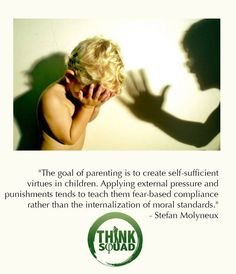
In 2011, Stefan Molyneux, a well-known Peaceful Parenting advocate, put out a great video on the facts about spanking. It's a topic he's covered extensively. I hope you'll check it out and learn the facts about spanking. I think most parents will be less likely to spank their children after learning about its effects on children's development.
The Non-Aggression Principle
The Non-Aggression Principle is the ethical stance that the initiation of force against another person or property is illegitimate.

The Golden Rule
According to the Bible, Jesus spoke to the people and urged them to treat others the way they would wish to be treated. He even went so far as to emphasize that this precept is fundamental to Christianity. It's a moral law of reciprocity laid down by the Christ himself, that two separate disciples of Christ (Matthew and Luke) wrote down for posterity.
Christians who ignore or overlook this tenet of Christianity as it applies to how they treat their children are quite honestly missing the point. See for yourself.
Do to others as you would have them do to you.—Luke 6:31 New International Version (NIV)
So in everything, do to others what you would have them do to you, for this sums up the Law and the Prophets.—Matthew 7:12 New International Version (NIV)
Universal Ethics
Maxims like The Golden Rule are universal ethics of reciprocity. That is why most of the world's religions have key commandments that provide guidelines for how we should treat others.
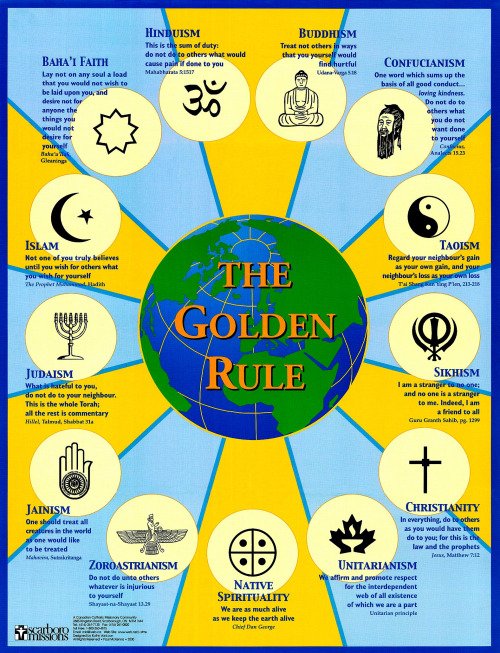
How we treat other people—including children—should be no different than the way in which we would wish to be treated.
Whether you're religious, atheist, or agnostic, the moral maxim to treat others with the same respect you would like to be treated is still relevant.
'The Free Society' Begins in Our Own Homes
How we treat other people—including children—should be no different than the way in which we would wish to be treated. It's time to abolish all forms of interpersonal aggression and domination, and instead model the peaceful, free society we wish to live in.
We are the ambassadors of The Free Society, and it's our job not to proselytize or coerce our children into behaving the way we want them to, but instead to show them the way by living out our libertarian principles so that they can see them in action and make the conscious choice to emulate them of their own volition.
Parents decide each day—sometimes consciously, and sometimes unconsciously—how we treat others in our own interpersonal relationships, how we speak, and how we prioritize what matters to us. Our children are watching and learning from our behavior.
We should consciously choose to be the kinds of people we want our children to grow up to be like. We should treat them the way we wish to be treated—the way we would have appreciated our parents treating us back when we were children.
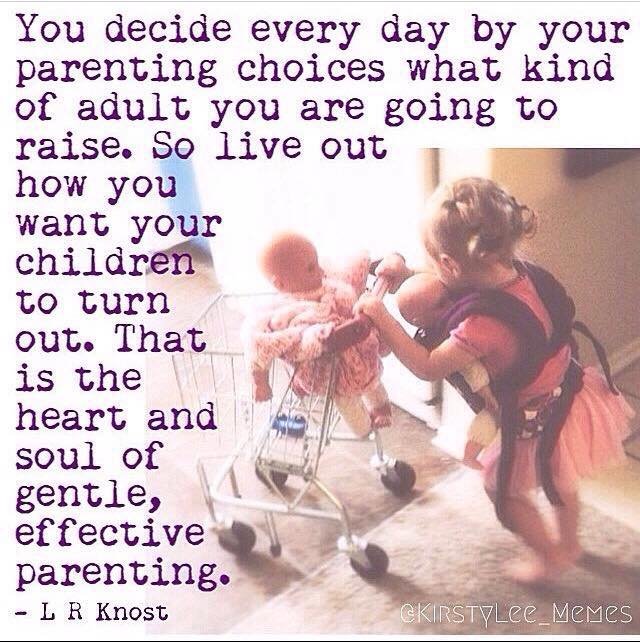
If we seek a peaceful and free society, we should start by creating one in our homes for our children, so that they grow up knowing that it is possible—because they've lived it.
Peaceful Parenting (The Compassionate Parenting Approach We Wish Our Parents Had Known About)
If we as a people want to move away from using violence and coercion to get things done in this world, we have to start making changes at home. In order to raise children who will grow up to resolve conflicts peacefully, and respect themselves and others, we must lead the way as peaceful parents by consciously choosing nonviolent, persuasive, gentle parenting methods instead.
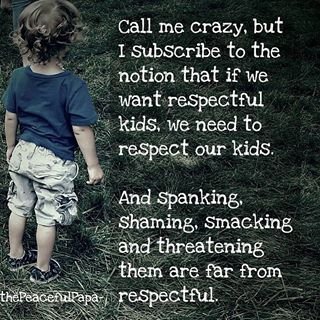
What Is Peaceful Parenting?
Peaceful Parenting is all about guiding children versus controlling them. Dayna Martin calls it a partnership. She relates to her children as she would with anyone else she enters into partnership with, and treats them with respect. When problems arise, they talk them out, and focus on the cause and solutions to their problems.
In the Peaceful Parenting model, nurturing connections with our children is emphasized rather than punishing them when they don't behave in ways we like. Peaceful Parenting emphasizes encouraging children and using the power of persuasion and positive role modeling to gently guide children, rather than demanding they do as we say or using intimidation, punishments, or other forms of coercion to get our way. Peaceful parenting requires thoughtfully responding to our children's needs and issues versus reacting to them out of frustration or anger.
Peaceful Parenting supports a stronger parent-child relationship because it is based on consistent mutual respect and mutual trust.
"Parents today are doing the best they can with what they know, yet many are feeling empty and wondering why their kids do not like them or want to be around them. We hear words like rebellion and chalk it up to normalcy, but what if there was nothing to rebel against? What if we lived the respect for our children that we demand they have for us? What if we could recognize that the punishments model injustice and that through using power to control another person we are teaching them to do the same? It is though loving kindness and understanding that our children learn love and peace and in turn will reflect this back to the world. Families who live in peace and freedom do not usually deal with rebellion from their children because we are never the wall standing between them and their desires. In fact, we see our role as helping our children get what they want in life. We move from power struggles and control to connection and partnership. When we make this shift, we discover the love and deep feelings of joy that we are naturally meant to experience as parents."—Dayna Martin, The Evolution of Children's Rights
This website, called Beyond Punishment, has compiled a list of helpful websites, blogs, and books for parents looking to learn more about Peaceful Parenting. I hope you'll spend some time checking it out.
Dr. Laura Markham, another Peaceful Parenting advocate created a website called Aha! Parenting, which has resources available for every stage of parenthood, from pregnancy and birth all the way through the teenage years! You can check it out here. She also wrote a book called Peaceful Parent, Happy Kids: How to Stop Yelling and Start Connecting that's definitely worth reading.
It's time we revolutionize our parenting approaches, and apply the same peaceful and respectful principles we use in dealing with others to the ways we parent our children. We must make the conscious choice to consistently respect our children's self-ownership by applying our libertarian values to the ways we treat our immediate family members.
I hope after reading this post, and checking out the links within, you'll seriously consider transitioning towards Peaceful Parenting, if you haven't already. It's never too late!
Additionally, you owe it to yourself to look into Nonviolent Communication. It focuses on solving problems peacefully, through effective communication strategies.
Free your children, and liberate yourself and your household from operating in a manner consistent with domination, coercion, and intimidation. Examine your parenting methods, and do away with any parenting tools that don't align with your values and ethics.
And if you choose to make changes, talk to your kids about why you've chosen to change your parenting methods. They will appreciate it! I promise.
Don't just talk about your principles, live them. Be the change you wish to see in the word.

Finally, I'll close with a section from Khalil Gibran's beautiful poem, The Prophet. If you haven't read The Prophet, check it out! It's lovely! This section is specifically about children and touches on exactly what I've been writing about. I hope it inspires you as it has inspired me.
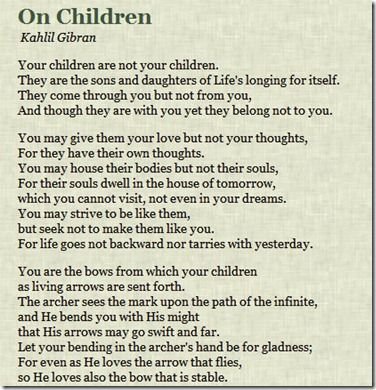
Let's Connect!
If you like this post, please upvote it and say hi in the comments below.
Be sure to like My Libertarian Lifestyle on Facebook, and follow my blog at My Libertarian Lifestyle as well.
I write about the effective, practical application of libertarian principles to daily life in the setting of an often chaotic modern family, including self-reliance and sustainability at home, gentle parenting methods, ethical shopping, using food as medicine, permaculture and urban gardening, self-maintenance, and holistic evidence-based health and wellness solutions for myself, my family, and even my pets.
Good blog.
Today i've created Blog about Who can be role model of your children? https://steemit.com/life/@kidsrhymes/big-question-who-can-be-role-model-of-your-children
Please check and leave your valuable feedback @kidsrhymes
Downvoting a post can decrease pending rewards and make it less visible. Common reasons:
Submit
wow great post! thank you!
Downvoting a post can decrease pending rewards and make it less visible. Common reasons:
Submit
Thank you for reading it and commenting, @robok! I appreciate it! :)
Downvoting a post can decrease pending rewards and make it less visible. Common reasons:
Submit
Love your post. Thank you #dawnlindholm
Downvoting a post can decrease pending rewards and make it less visible. Common reasons:
Submit
Thank you, @atle-v! :)
Downvoting a post can decrease pending rewards and make it less visible. Common reasons:
Submit
Thank-you #dawnlindholm
I am an unschooling mom to 3 and practice gentle parenting. I recognize some of the people that you have quoted. Thanks for putting this all together so nicely.
In case you haven't heard of it yet, a good source of information for Christians who believe "Spare The Rod, Spoil The Child", is a very well done and scripture based free e-book that explains how the Bible never teaches that we should spank/hit our children. It is written by Samuel Martin.
Here's where to get a copy: http://whynottrainachild.com/2013/06/22/download-martins-book/
Downvoting a post can decrease pending rewards and make it less visible. Common reasons:
Submit
Thank you, @canadian-coconut! I haven't heard of it, but will definitely check out that link. (I've already got it pulled up.) Thank you so much for sharing it with me, and for taking the time to read and comment on my post. :)
Downvoting a post can decrease pending rewards and make it less visible. Common reasons:
Submit
I agree with this entire thing, and hope that others will follow the golden rule. I see that there are several ways to correct your children when they "act out" and one of those ways is to understand the situation.
Thank you for this well thought out post...
:D
Downvoting a post can decrease pending rewards and make it less visible. Common reasons:
Submit
Thank you so much for reading my post, @codymac40! I hope so too, and I believe it will happen! :)
Downvoting a post can decrease pending rewards and make it less visible. Common reasons:
Submit
i think you have a problem with the ones the grow you up please research property cause you dont understand what your saying you have some misleading statement about parents your statement should read for the parent that grew me with the best they know how.
Downvoting a post can decrease pending rewards and make it less visible. Common reasons:
Submit
Hi, @djpat1974. I'm not sure if I understand your comment. If you're suggesting that I have a problem with my parents and/or how they raised me, I can assure you that I have an excellent relationship with my parents, and so do my children. I was fortunate enough to be raised in a loving household with both parents present, and my parents really did try their best to raise me right. Loving parents can, however, be authoritarian in their parenting styles. I would like to move away from authoritarian, coercive systems, and intentionally shift towards methods based on mutual respect and cooperation in all spheres of life, including parenting. I have done extensive research into property rights and Peaceful Parenting, and I think I have a pretty solid understanding of them both. Thanks for reading my post and commenting on it! I appreciate it. :)
Downvoting a post can decrease pending rewards and make it less visible. Common reasons:
Submit
Wow...you're sure trying to say a lot there Dawn. While I agree with the overall idea of individuality. I believe there are limits when it comes to rearing our sons & daughters 'peacefully'. We see all around us the results of my generations failings as mothers and fathers. We were the "Me" generation and we, somewhere along the line, bought into this whole "be your kids best friend" garbage. As a result, our children feel they own us, and they're entitled to anything that makes them feel good, regardless of the means of acquisition, or the consequences. I see moms & dads my age running around acting like their kids, not the other way around. Vocabularies no better than high schoolers. A reluctance, or down right refusal to use ANY form of discipline, correction (or whatever the buzz word of the day is), when necessary, and just expecting those around them to accept them as precious kids and get out of their way. No offense meant here, but we grew up learning the golden rule from my father's generation who lived it and fought a 2nd world war based on that rule. Our folks understood that no matter HOW independent you want your 2, 3, 4, 5, 6, 7, etc, yr old to be, the FACT of the matter is, they're NOT independent AT ALL, mentally OR physically. They are completely dependent on the family, and the family on itself. In fact, it is the moral obligation of both mom and dad, to honor their responsibility of rearing respectful, responsible, intelligent, strong, and confident adults. Not grown up kids, but adults. Our kids are not meant to be raised, they're not animals. We don't throw them in a pasture and say "Oh they'll be fine". We see the direction we feel is best for them based on our beliefs, and we pave their way. That is our responsibility as their mothers and fathers. Consequences were lessons learned early and depending on our density, often lol. My point is this, I believe we do our progeny, and the world we shape for them to inherit, an enormous injustice by thinking they are more capable than they are during their early and formative years. To treat them otherwise, is also tremendously irresponsible on the part of us 'intelligent' adults. Should we love our kids? Obviously and absolutely. Should we ONLY deal with them coming from a place of love? Again, obviously and absolutely. But if we fail to acknowledge that love comes in many forms from our folks, for many reasons, we are attempting to short circuit a crucial part of the necessary relationship kids need with their folks, to become fully functioning, rational, loving and respectful adults. Attaining the age of majority is something that's earned, not assumed, and something we are sorely lacking and in need of today to bring about a peaceful, loving society, environment and planet. But we can't show them the way if we're not there ourselves. Again, I understand the need for our kids to be free and independent, I get that, but not by way of political correctness and fear, but by way of loving, strong mothers and fathers who fear spoiling the child by sparing the rod.
Downvoting a post can decrease pending rewards and make it less visible. Common reasons:
Submit
Hi, @voxpop. I want to emphasize that I am not advocating for permissive parenting or for political correctness. I am, however, advocating for children's rights to be respected, and for parents to stop treating children like their property. Thank you for reading my post, and for taking the time to weigh in.
Downvoting a post can decrease pending rewards and make it less visible. Common reasons:
Submit
Congratulations @dawnlindholm! You have received a personal award!
Click on the badge to view your own Board of Honor on SteemitBoard.
For more information about this award, click here
Downvoting a post can decrease pending rewards and make it less visible. Common reasons:
Submit
A really good read, thank you. I strive for peaceful parenting after being raised in a rather violent and authoritarian home myself. Am doing my best and learning along the way! It's hard to break away from repeating the "role models" one had as a kid.
Downvoting a post can decrease pending rewards and make it less visible. Common reasons:
Submit
Congratulations @dawnlindholm! You received a personal award!
You can view your badges on your Steem Board and compare to others on the Steem Ranking
Vote for @Steemitboard as a witness to get one more award and increased upvotes!
Downvoting a post can decrease pending rewards and make it less visible. Common reasons:
Submit
Downvoting a post can decrease pending rewards and make it less visible. Common reasons:
Submit
Thank you so much, @alaynaspop! I appreciate you saying so.
Downvoting a post can decrease pending rewards and make it less visible. Common reasons:
Submit